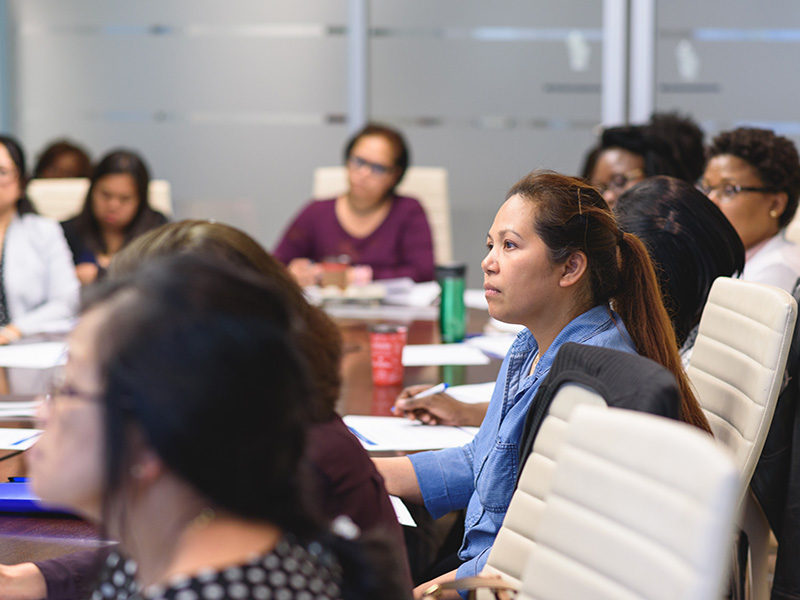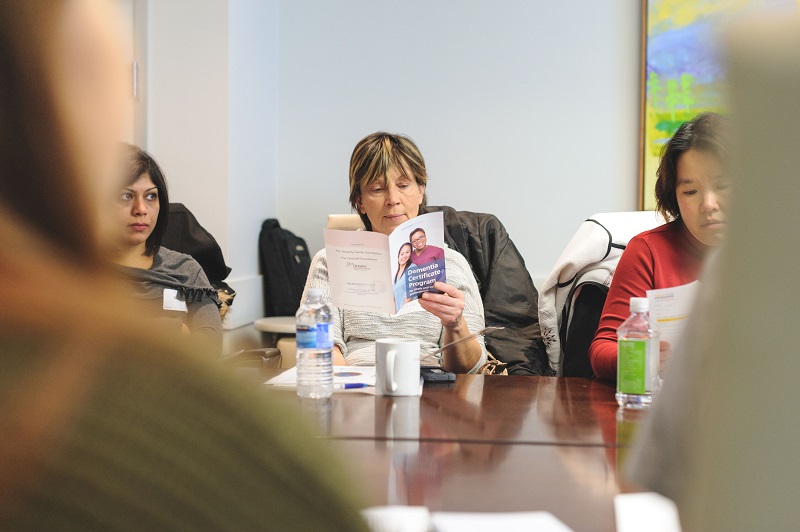Calendar
Certificate Program
Events

November 13, 2025 @ 9:00 am - 5:00 pm
Gentle Persuasive Approaches (GPA) Training
Alzheimer Society of Toronto Head Office 20 Eglinton Ave West, 16th floor, Toronto, Ontario, CanadaGPA Basics is a 4 module evidence-based education session designed for team members who care for older adults who display responsive behaviours associated with dementia.
Audiences:

November 19, 2025 @ 9:00 am - 12:00 pm
Dementia Foundations
This 3-hour course will provide you with a foundation of dementia, enabling you to enhance your knowledge in providing quality care for persons living with dementia.
Audiences:
![U-First! (for Health Care Professionals) [Half Days] Thumbnail](https://alz.to/wp-content/uploads/2024/10/u-first.jpg)
November 20, 2025 @ 5:00 pm - 8:00 pm
U-First! (for Health Care Professionals) [Half Days]
U-First!® is a training program that helps non-registered health care providers develop a common knowledge base, language, values and approach to caring for people with Alzheimer’s disease and cognitive impairment by understanding the person and associated behaviour changes, and working as a team to develop individualized support strategies.

November 22, 2025 @ 9:00 am - 5:00 pm
Gentle Persuasive Approaches (GPA) Training
Alzheimer Society of Toronto Head Office 20 Eglinton Ave West, 16th floor, Toronto, Ontario, CanadaGPA Basics is a 4 module evidence-based education session designed for team members who care for older adults who display responsive behaviours associated with dementia.
Audiences:
![U-First! (for Health Care Professionals) [Half Days] Thumbnail](https://alz.to/wp-content/uploads/2024/10/u-first.jpg)
November 27, 2025 @ 5:00 pm - 8:00 pm
U-First! (for Health Care Professionals) [Half Days]
U-First!® is a training program that helps non-registered health care providers develop a common knowledge base, language, values and approach to caring for people with Alzheimer’s disease and cognitive impairment by understanding the person and associated behaviour changes, and working as a team to develop individualized support strategies.

December 8, 2025 @ 9:00 am - 5:00 pm
Gentle Persuasive Approaches (GPA) Training
Alzheimer Society of Toronto Head Office 20 Eglinton Ave West, 16th floor, Toronto, Ontario, CanadaGPA Basics is a 4 module evidence-based education session designed for team members who care for older adults who display responsive behaviours associated with dementia.
Audiences:

December 13, 2025 @ 9:00 am - 12:00 pm
Palliative Care in Dementia Program
This training program is aimed at enhancing the knowledge of frontline staff in caring for people with dementia using a palliative care approach. This program focuses on promoting quality of life and comfort for individuals living with dementias and their families, with particular emphasis on late stage and end of life.
Audiences:

December 13, 2025 @ 9:00 am - 5:00 pm
Gentle Persuasive Approaches (GPA) Training
Alzheimer Society of Toronto Head Office 20 Eglinton Ave West, 16th floor, Toronto, Ontario, CanadaGPA Basics is a 4 module evidence-based education session designed for team members who care for older adults who display responsive behaviours associated with dementia.
Audiences:

December 18, 2025 @ 9:00 am - 4:00 pm
U-First!® (for Health Care Professionals)
Alzheimer Society of Toronto Head Office 20 Eglinton Ave West, 16th floor, Toronto, Ontario, CanadaU-First!® is a training program that helps non-registered health care providers develop a common knowledge base, language, values and approach to caring for people with Alzheimer’s disease and cognitive impairment by understanding the person and associated behaviour changes, and working as a team to develop individualized support strategies.
Audiences:

January 8 @ 10:00 am - 1:00 pm
Dementia Foundations
This 3-hour course will provide you with a foundation of dementia, enabling you to enhance your knowledge in providing quality care for persons living with dementia.
Audiences:

January 22 @ 10:00 am - 1:00 pm
Palliative Care in Dementia Program
This training program is aimed at enhancing the knowledge of frontline staff in caring for people with dementia using a palliative care approach. This program focuses on promoting quality of life and comfort for individuals living with dementias and their families, with particular emphasis on late stage and end of life.
Audiences:

January 24 @ 9:00 am - 4:00 pm
U-First!® (for Health Care Professionals)
Alzheimer Society of Toronto Head Office 20 Eglinton Ave West, 16th floor, Toronto, Ontario, CanadaU-First!® is a training program that helps non-registered health care providers develop a common knowledge base, language, values and approach to caring for people with Alzheimer’s disease and cognitive impairment by understanding the person and associated behaviour changes, and working as a team to develop individualized support strategies.
Audiences: